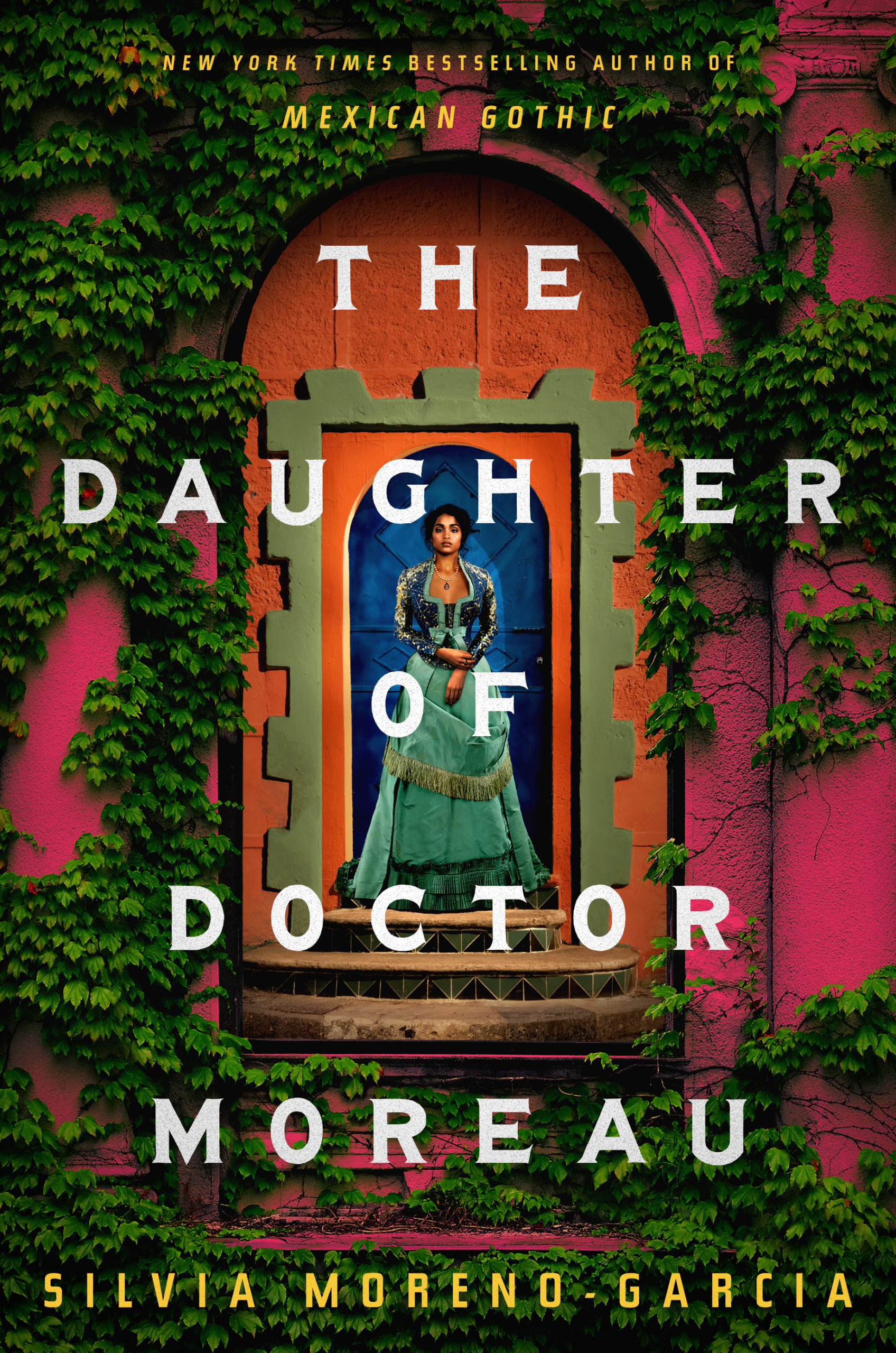- The Good: Coming of age story about a young woman finding her independence
- The Bad: Doesn’t live up to its homage
- The Literary: Based on the historical setting and the mad doctor and his assistent in The Island of Doctor Moreau
Carlota Moreau loves the distant, luxurious estate in the forests of the Yucatán peninsula where she grew up. She’s the only daugther of Dr. Moreau, a genuis who creates part human, part animal monstrosities. Montgomery Laughton, an alcoholic Englishman with a tragic past, oversees the estate, assists Dr. Moreau, and protects Carlota. Dr. Moreau’s experiements are funded by the wealthy Lizalde family, and when the charming son Eduardo Lizalde arrives, secrets unravel and passions ignite.
If the synopsis sounds familiar, it’s because The Daughter of Doctor Moreau is loosely based on the world of The Island of Doctor Moreau, which, if you’re an H.G. Wells fan, may bring a lot of expectations. My advice is to leave those expectations at the door, because you will be disappointed.
Instead, immerse yourself in the lush historical romance drama set in nineteenth century Yucatán, Mexico. The sourthern peninsula was quite isolated at the time and often drawn as an island on 18th century maps, and as a reader, you feel that you’re in in the humid wild jungles. I like that native Maya peoples are featured in the story and colonialism is discussed (although I wish there was more). Two of Dr. Moreau’s hybrids, Lupe and Cachito, have their own arcs but they’re seen through the POV of Montgomery and Carlota. Primarily, the story is a coming of age story for Carlota, as she learns about herself, falls in and out of love, and becomes an independent woman. The romance is the best part and carries the story.
Although there are some ethical themes about humanity and whether the experiments deserve the rights of humans, they are minimal. Because I can’t help but compare this to the original, I miss the horror, the mystery, and the slow reveal. But I said earlier to leave those expectations behind, so I’ll discuss just this story. The plot is quite simple, but effective. I find the characters simple as well, which is not so effective. The climax of the good guys versus the Lizalde family is all flat action, which contrasts with the slow interpersonal drama preceeding it. In fact, the entire book isn’t sure if it wants to sci-fi, romance, or horror. It ends up being a tame story best suited for the YA genre.
